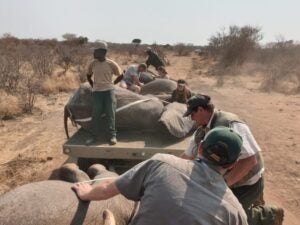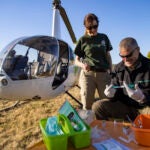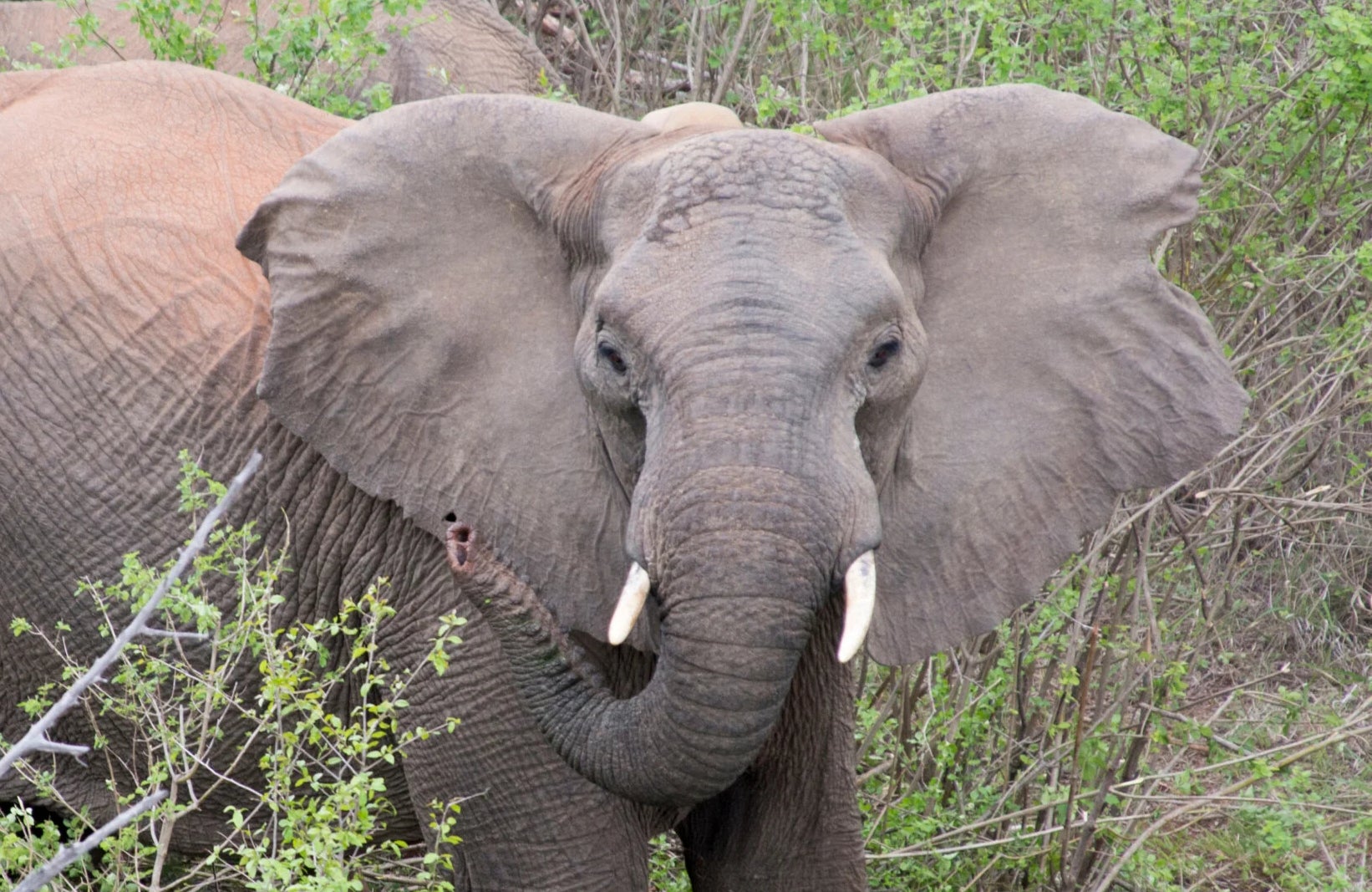
CAPE TOWN— A wild herd of elephants that roamed in Limpopo’s Atherstone Game Reserve has been translocated by Global Supplies – Conservation Initiatives to a safe haven through the collaborative efforts of the Elephant Reintegration Trust, global animal welfare organisation Humane Society International-Africa (HSI-Africa) and Fondation Franz Weber, a Swiss organisation that has been dedicated to the protection of elephants since 1975.
At the same time, HSI-Africa treated the herd’s females with immunocontraception to humanely control the population growth at their new home.
Elephant immunocontraception – a non-steroidal, non-hormonal and humane method of elephant population control – has been researched and funded by HSI and the Humane Society of the United States since 1996. Immunocontraception uses the female elephant’s own immune response to block egg fertilisation.
Female elephants over the age of 10 years are darted remotely from a helicopter with a dropout dart that contains the immunocontraception vaccine and a marking dye. This marks the elephant at the dart site, creating a quick aerial reference of which animals have been darted. The dart falls out a short while afterwards. Thus, the animals do not need to be immobilised in order to be treated and the vaccinations are completed within minutes.
“This relocation marks the 36th population and 1041th female elephant on immunocontraceptive treatment to date. This is more than half of all breeding age female elephants in populations outside of the Kruger National Park.
“Considering that a female is capable of reproducing eight to 10 elephant calves within her lifespan, the exponential effect of our immunocontraception programme means that thousands of elephants have been spared from death through a cull as they compete for land and resources with people in an ever-shrinking habitat,” says HSI-Africa wildlife director, Audrey Delsink.
Smart elephant management
In addition to contracepting the females, HSI-Africa and partner Global Supplies – Conservation Initiatives also deployed a satellite tracking collar on one of the herd members to remotely monitor the elephants at their new home under the watchful eye of the Elephant Reintegration Trust. This translocation forms part of groundbreaking research into elephant behaviour and reintegration and is critical to our understanding of elephant management.
“The collaring and immunocontraception are part of a long-term, proactive elephant management strategy. Both activities work to save elephants’ lives and mitigate human-elephant conflict. We are extremely proud and excited to be part of this project that will not only lead to the enrichment of the lives of these elephants but will change the way in which we manage elephants in the future.
“We are delighted to collaborate with the Elephant Reintegration Trust, Fondation Franz Weber, who provided funding for the transportation of the elephants, and our partner, Global Supplies – Conservation Initiatives, as well as the progressive reserve that has willingly accepted this herd. We all share the same vision of peaceful human-animal co-existence,” added Delsink.
HSI-Africa is the only non-profit organisation that specifically works on humane methods of population management in and around reserves where elephants could come into conflict with surrounding communities.
ENDS
Media contact: Marisol Gutierrez, HSI-Africa media and communications manager, +27 72 358 9531, mgutierrez@hsi.org
Download photos of the elephant relocation





